The Film Premiered at the John F Kennedy Library and Museum in May 2018 to an audience of more than 300.
Click the arrow above to view a “trailer” of the film.
“Speaking at Amherst College in his native Massachusetts on Oct. 26, 1963 – with his final trip to Dallas four weeks ahead — Kennedy delivered a powerful message to the liberal arts-schooled students about the dynamics of poetry and power. His thesis – that the young were obligated, through the arts and their activism, to question societal institutions, government and politics included – struck a chord among those who were there, so strongly for some that it has profoundly influenced their lives.” — Ed Bradley, Associate curator of film at the Flint Institute of Arts; formerly Flint Journal editor, writing for the East Village Magazine.
“A strong, polished and inspiring documentary about two men of influence, John F. Kennedy and Robert Frost, and how a speech at a moment of time, the groundbreaking event at Amherst College on October 26, 1963 for the Robert Frost Library, impacted a group of Amherst College classmates then, and continues to this day, as they pass on Kennedy’s message of social action and self-sacrifice, through their own personal interaction, sharing and mentoring with current generations and impacting generations to come.” Gordon Nordstrom, Jury Member, Vero Beach Wine and Film Festival
JFK: The Last Speech is available for purchase, and for streaming on iTunes and Amazon.
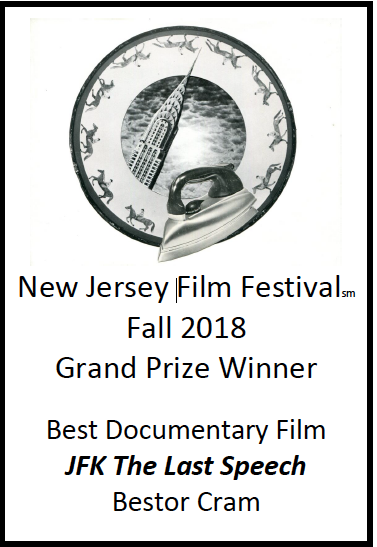
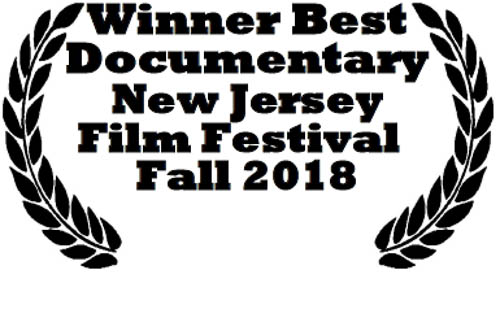
Read interview of Bestor Cram by Albert Nigrin, Executive Director/Curator of the New Jersey Film Festival. Bestor Cram is Producer/Director of JFK The Last Speech.
The Film – JFK: The Last Speech
In this era of political tension, when civic culture is fractured, when the value of the liberal arts is questioned, a message from 1963 has particular resonance today.
Twenty-seven days before he was assassinated, President Kennedy came to Amherst College to honor the poet Robert Frost. He spoke of the relationship between poetry and power and of a view shared with Frost that power must be exercised, but wisely — tempered by a moral restraint inspired by the arts and a liberal education. And, he spoke of the obligation of those “given a running start in life” to serve the public interest.
Our documentary, JFK: The Last Speech, coinciding with the 2017 centenary of JFK’s birth, communicates the impact of this message through the stories of Amherst alumni and students and reflections by prominent scholars and political observers. Produced by an award winning filmmaker, Northern Light Productions, this film will ignite public discourse on enduring values and on our shared responsibility for the public interest. It is a call to action to rebuild our civic sphere — infused with broad sympathy, understanding, and compassion. – Reunion ’64
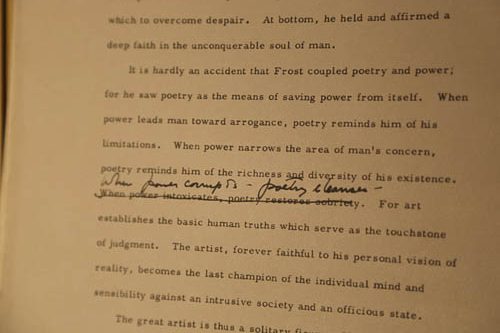 Excerpt showing President Kennedy's hand-written edit to his address at Amherst
Excerpt showing President Kennedy's hand-written edit to his address at AmherstFrom the Filmmaker
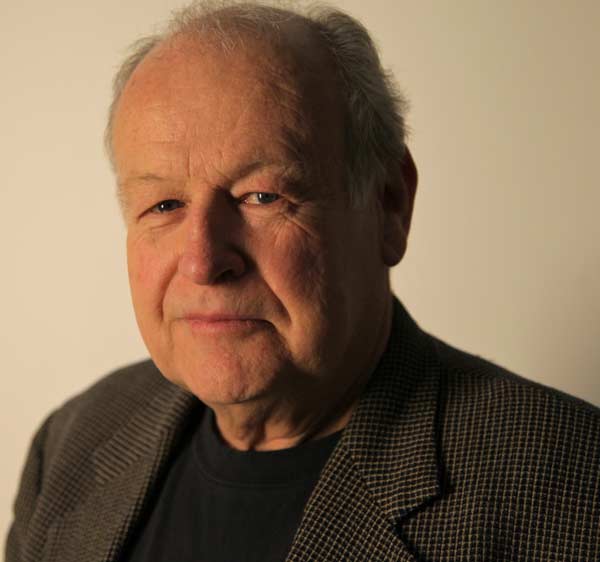 Bestor Cram
Bestor CramThe filmmaker, Bestor Cram, discussed his perspective on the meaning of JFK: The Last Speech in his essay, “Solace from Well-Chosen Words.” Excerpts from this essay follow:
In 1960, Norman Mailer prophesized that “America’s politics would now be America’s favorite movie.” Following three years of John Kennedy’s presidency, motion pictures of assassination, murder and funeral would unite the nation in astonished grief, in a manner we had not known before. What we had believed and trusted all changed. The solace and insight that words bring seemed to disappear. We were left to judge not if life had become a movie, but more profoundly what had this shared medium meant to our sense of self, our evolving national character, and the way we understood the world we lived in.
The fact was that we had been brought together less by an event than by an individual: Kennedy. And the camera had much to do with translating his charismatic eloquence.
As a documentary filmmaker, visual evidence is my stock and trade. I know, however, that this is not the silent film era. It is a time in which the sound that accompanies cinema is more than mere music or amplification of natural elements. It is often the vehicle that enables the narrative to unveil itself. Often it is what provides structure, sets tone, and reveals emotion so linked to the experience of cinematic storytelling.
In the case of the two principal subjects of JFK: The Last Speech, it is the passionate voice and carefully selected words that provide the foundation for reconsidering an address that was largely lost in the tragic events closely following its October 1963 delivery at Amherst College by JFK, who was honoring Robert Frost. Historian Douglas Brinkley states,
“Kennedy thought oratory was a way to move people. And you saw that when he started out with his inaugural address and you follow these remarkable set of speeches. Honestly, you have to go back – I mean, FDR had great speeches, but they weren’t these compositions of intellectual and civic engagement the way that Kennedy did.”
JFK: The Last Speech has been a project of passion, in memory of a man who served our nation with a noble distinction that would seem essential to the office he held, and yet is so lacking in the politics of today The disparity causes us to reflect on the stanzas of President Kennedy’s address that speak to our need to be engaged citizens who find wisdom in the arts:
“The artist, however faithful to his personal vision of reality, becomes the last champion of the individual mind and sensibility against an intrusive society and an officious state … In pursuing his perceptions of reality, he must often sail against the currents of his time.”
We learn from the past; it offers inspiration and guidance for how to navigate the ethical dilemmas we encounter on a daily basis. “When power corrupts, poetry cleanses,” Kennedy said. And like many documentaries, this story has multiple endings…
The other ending has to be with Robert Frost, whom JFK was eulogizing at Amherst: “We must never forget that art is not a form of propaganda; it is a form of truth,” said the President. I love to believe that cinema is part of understanding what the truth is. The act of going to the cinema is part of our own search for truth. It is also an affirmation of friendship, for we are able to see life in a movie and share that with those we hold dear. For many of us, it is Frost who was able to underscore our humanity simply and eloquently as an extension of who we are to one another. 1
– excerpts from essay by Bestor Cram, Principal and Creative Director of Northern Light Productions
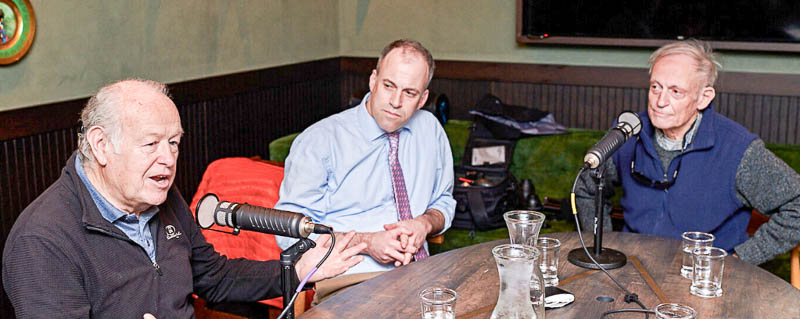
Listen to the interview of filmmaker Bestor Cram, and Amherst ’64 classmate Roger Hirschberg discussing the development of JFK: The Last Speech. They are interviewed by Chuck Clough and Ron Hirschberg for the Boston-based podcast Above The Basement. Pictured: Bestor Cram, Ron Hirschberg and Roger Hirschberg.
Film Credits:
Executive Producer: Neil Bicknell
Associate Producers: Robert Benedetti, Roger Mills, Stephen Smith II, Richard Sparks, Charles Stover III
Historians appearing in the film:
Douglas Brinkley, Ellen Fitzpatrick, Jay Parini
Amherst 64 Classmates:
Featured Stories: Steve Downs, Ted Nelson, Gene Palumbo, George Wanlass
Perspectives: Raymond D. Battocchi, Pat DeLeon, Robert Frank, James T. Giles, Tom Jacobs, Doug Lowy, Mitch Meisner, Roger Mills, Peter Rubinstein, Terry Segal, Paul C. Stern, Joseph Stiglitz, Charles Stover, Joseph Wilson
Filmmaker: Northern Light Productions
Producer/Director: Bestor Cram
Co-Producer/Writer: Matthew MacLean
Co-Producer/Narrator: Portland Helmich
Editor: Glen Fukushima
Animator: James Carlsen
Research Archivist: Shane Butler
Cinematographers: Bestor Cram, Jesse Beecher
Sound Recordists: Matthew MacLean, Ben Avishai, Andy Turrett
Broadcasts of The Film 2018-9
Alpena, MI (WCML)
June 2, August 18
Augusta (WEBA)
August 18, 19, 21, 22, 23, 25, 26;
November 24, 25, 26, 29; December 2
March 2, 4, 2019
Austin (KLRU)
June 5, 6; August 26, 27
Baltimore (MPT)
June 5
Billings (KBGS)
November 4
May 19, 2019
Boise (KAID)
October 22, 26, 28, 29, 30; November 1
Boston (WGBH, WGBZ)
August 9, 10, 12
July 25, 28, 2019
Buffalo (WNED)
June 5
Butte-Bozeman (KUSM)
November 4
May 19, 2019
Charleston, SC (WITV)
August 19, 21, 22, 23, 25, 26;
November 24, 25, 26, 29; December 2
March 2,4, 2019
Charlotte (WNSC)
August 19, 21, 22, 23, 25, 26;
November 24, 25, 26, 29; December 2
March 2,4, 2019
Cheyenne (KTNE)
June 4, 7
Cleveland (WVIZ)
June 9
March 4, August 16, 2019
Columbia, SC (WRJA, WRLK)
August 19, 21, 22, 23, 25, 26;
November 24, 25, 26, 29; December 2
March 2, 4, 2019
Detroit (WTVS)
June 5
Eureka (KEET)
June 7, 2019
FARGO (KFME, KGFE, KCGE, KMDE)
June 10
Flint-Saginaw (WCMU, WCMZ)
June 2; August 18
Grand Rapids & Kalamazoo
June 3
Great Falls (KUGF)
November 4
May 19, 2019
Greenville-Spartan (WNEH, WNTV, WRET)
August 19, 21, 22, 23, 25, 26;
November 24, 25, 26, 29; December 2
March 2, 4, 2019
Helena (KUHM)
November 4
May 19, 2019
Idaho Falls (KISU)
October 22, 26, 28, 29, 30; November 1
Indianapolis (WFYI)
June 5, 6, 10; August 19; December 3, 4, 8
Las Vegas (KLVX)
February 17, 21, 2019
Lincoln-Hastings (KOUN, KHNE, NET2)
June 4, 7
Los Angeles (KCET)
June 2, 3, 5, 7, 8, 24, 26; July 3, 4, 7;
October 1, 5, 7
January 15, 17, 19, 21, 23, 25, 2019
Maryland (MPT)
June 5
Miami (WLRN)
June 3, 6
Minot-Bismarck (KBME, KDSE, KSRE,KWSE)
June 10
Missoula (KUFM, KUKL)
November 4
May 19, 2019
Monterey CA (KQET-2)
June 3, 4, 6
Myrtle Beach (WHMC, WJPM)
August 19, 21, 22, 23, 25, 26;
November 24, 25, 26, 29; December 2
March 2, 4, 2019
NEBRASKA (NET World)
June 4, 7
New Orleans (WYES, WLAE)
June 7, 20; November 22, 23, 25, 26
February 1, 3, 4; May 23, 24, 26, 27; August4
Norfolk (WHRO)
June 5, 6, 10
N DAKOTA (Prairie Public Broadcasting)
June 10
Oklahoma City and Tulsa
June 5
Peoria (WTVP)
June 4
Philadelphia (WLVT)
June 3, 5
Pittsburgh (WQED Showcase)
June 1, 2, 3, 4, 5, 6, 7, 8, 9, 10, 11, 12, 13, 14, 15
Pittsburgh (MPT)
June 5
Providence (RIPBS)
June 3, 4
Rochester/Austin MN (KSMQ)
June 6, 8, 11
Sacramento (KVIE)
December 30
Salisbury (WCPB)
June 5
San Francisco (KQED PLUS & KQEH)
June 3, 4, 6
Savannah (WJWJ)
August 19, 21, 22, 23, 25, 26;
November 24, 25, 26, 29; December 2
March 2 4, 2019
Spokane (KWSU, KCDT, KUID)
June 10 (KWSU) June 14;
October 22, 25, 28, 29, 30; November 1
Springfield – Holyoke (WGBY)
August 5
St. Louis (KETC)
June 10; December 11
Topeka (KTWU)
June 10
Traverse City (WCMV)
June 2; August 18
Tucson (KUAT)
June 3, 4, 5, 9; August 25, 28
Tulsa (KOED/KOET)
June 5
Twin Falls (KIPT)
October 22, 25, 28, 29, 30; November 1
Washington (WHUT)
June 3, 11, 12; August 12
August 15, 2019
Washington DC (MPT)
June 5
Wilkes Barre/Scranton (WVIA)
June 5, 6, 9
“When power leads man towards arrogance, poetry reminds him of his limitations. When power narrows the areas of man’s concern, poetry reminds him of the richness and diversity of his existence”
– President Kennedy at Amherst College
Notes:
1 Bestor Cram, “Solace from Well-Chosen Words,” JFK: The Last Speech. Mascot Books, 2018.
Photo Credits:
Excerpt showing President Kennedy’s hand-written edit to his address at Amherst. Courtesy of the Amherst College Archives and Special Collections, Amherst College Library.
Bestor Cram. Courtesy of Northern Light Productions.
Bestor Cram, Ron Hirschberg, Roger Hirschberg. Courtesy of Above The Basement.